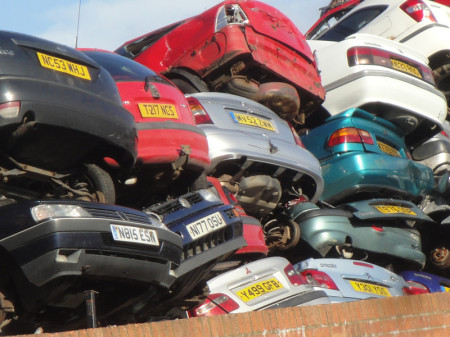The older your car is, the more costly and unreliable it is generally going to be. MOTs and services add up, and long journeys on motorways can begin to feel perilous. And then ultimately, the day comes when your motor has to join the big old scrapyard in the sky.
Considering that many cars get sold on to new owners, are leased, or are hired through a company, not a lot of people are clued up on the best way of scrapping a vehicle.
So when the time comes and you have an end-of-life vehicle on your hands, you need to know the dos and don’ts of disposing it responsibly. We’re here to help you avoid the pitfalls and make sure you and your car get the best deal from your chosen Authorised Treatment Facility (ATF).
Do
Use a reputable firm. Make sure the scrapyard you deal with has all the right certification and good recommendations from the public.
Fill in your V14 form to claim back remaining car tax.
Get in touch with your car insurance company and see what money you can reclaim, or use to cover your next vehicle.
If you’re vehicle is off the road, declare your vehicle as SORN to the DVLA. You also need to declare the vehicle as scrapped once you’ve sent it off to the scrapyard.
Provide your ATF with the vehicle logbook, otherwise known as the V5C form.
Don’t
Don’t take your vehicle to anywhere that isn’t an ATF.
Don’t accept cash for your vehicle. Cash is banned under the Scrap Metal Dealers’ Act.
Forget to contact the DVLA if you want to transfer your registration plate from the old vehicle to a new one.
Make sure you receive your Certificate of Destruction from the scrapyard. You should receive this within a maximum of a week.
If you need to get your vehicle scrapped in the Greater Manchester area and need help with the process, contact Dronsfield’s today.



